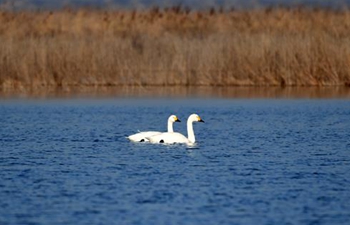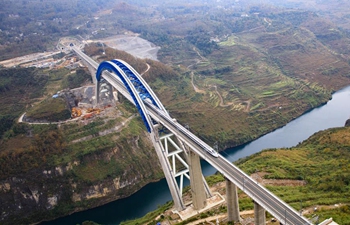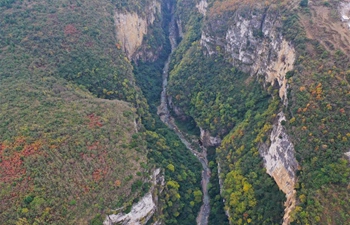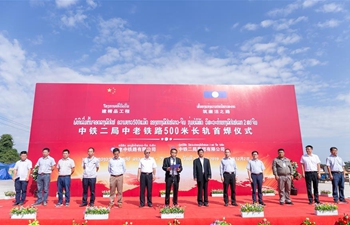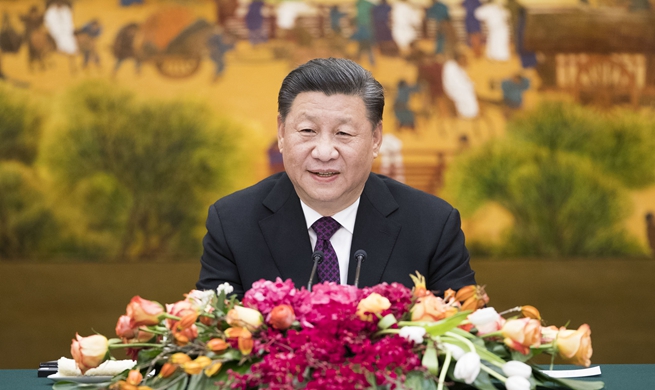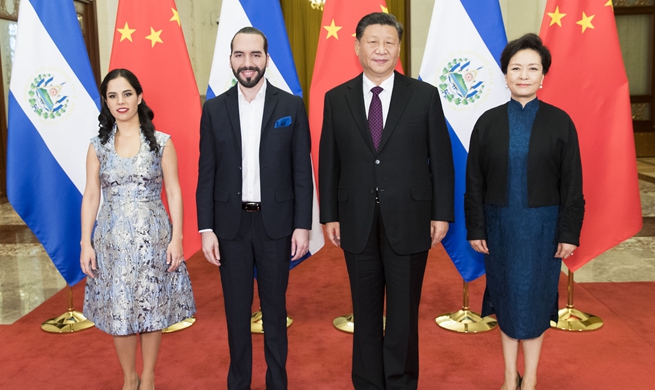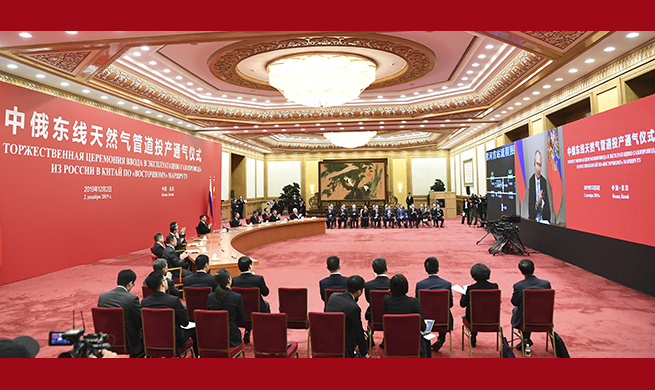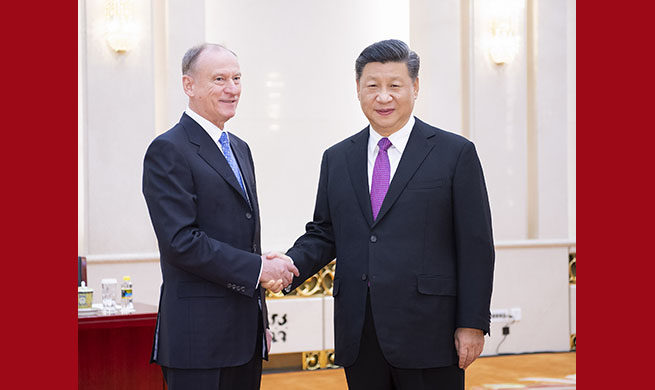CAPE TOWN, Dec. 3 (Xinhua) -- The South African government on Tuesday stressed the urgency to mobilize the whole society to fight drought.
The persistent drought has left a very negative impact on the country's economy, especially on the agricultural sector, affecting food security and exports, said Lindiwe Sisulu, Minister of Human Settlements, Water and Sanitation.
The drought, which has continued since 2014, has devastated most parts of the country, highlighting the need for a more elaborate facility that can be applied to consistently guide management of water supply and mitigation against risks, the minister said at a press briefing in Cape Town.
Sisulu said she called the press briefing to communicate "the dire situation and our strategic response to it."
Average dam levels are currently around 58 percent, compared to 69 percent for the same time last year, according to official figures.
Of the nine provinces, Eastern Cape, Northern Cape, Western Cape, Free State and Mpumalanga are the hardest hit.
Earlier this year, the government provided 260 million rand (about 17.7 million U.S. dollars) in response to the drought.
"We cannot afford to ignore the impact of climate change, of growing populations and changing economic activities - all these make the planning of our long term water management more difficult," said Sisulu.
But all of South Africans as water users need to evaluate their performance and, as important, adjust their own behavior and mentality towards water, she said.
The best way to mitigate vulnerability is to save and preserve the little available resource that South Africans have, Sisulu said.
"As mentioned from time to time and over the years, that South Africa still has higher water consumption per capita than world average, and yet we still continue to use water irresponsibly," said the minister.
South Africa is a severely water scarce country with no mighty rivers that flow all season like in other parts of Africa and the world.
With an average annual rainfall of 500mm compared to a global average of 860mm, South Africa is the world's 30th driest country.
To balance requirements and supply, South Africa will need to reduce water demand, as well as increase supply for a growing population and economy in order to ensure water security by 2030, Sisulu said.
This will be done by encouraging behavioral change and ensuring that the public participates in government programs to reduce use and preserve water, Sisulu said.
"We must consider our use with our mind on the sustainability of our resources for our future generation," she said.
The minister urges the public to use water sparingly and to be water wise, to assure and ensure water security for the future.
"We will continue to be stringent in the application of the law and the prescripts of the water use licenses as issued across the board, because anything less will be tantamount to the dereliction of duty on our part," she said.
This will lead to a great social capital, where stakeholders and government are in a sound partnership in each and every community, the minister added.
In addition to introducing various water-saving technologies, the government will take short-term interventions, Sisulu said.
Restriction rules have proven to work best as it responds by reducing depletion of stained sources, she said.
"We have the responsibility as a country to ensure that we preserve and use sparingly the little resources that we have," said Sisulu.
She stressed the need to create a social compact between the government, business and labor and all South Africans to protect scarce water resource and at the same time ensure that everyone has access adequate water supply and safe and dignified sanitation.
